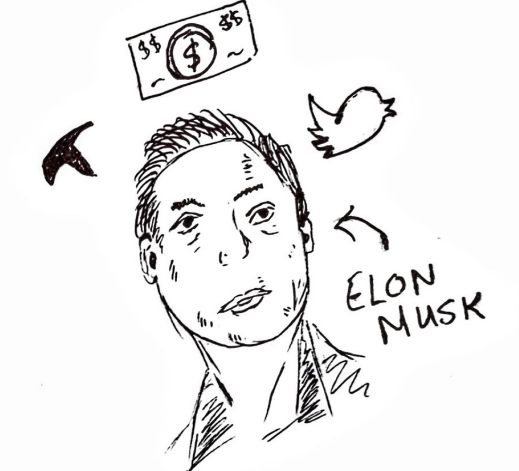Elon Musk’s Twitter: A Long-Time User’s Perspective

As someone who’s interested in politics, finance, and current events, it’s perhaps not surprising that I’m an avid user of Twitter. In fact, Twitter was the first social media platform I ever signed up for back in October 2015. Needless to say, it was quite a change when Elon Musk purchased the platform.
Elon Musk first offered to buy Twitter for $44 billion dollars in April 2022. Over the following months, there was much legal back and forth between Musk and Twitter over issues such as user counts and bots, with Elon threatening to back out of the deal. Once Twitter moved to force him to buy the platform as written in the terms of their agreement, Musk decided to avoid a trial and closed the deal at the original offer. He formally took control of the platform on October 28, 2022.
Elon’s acquisition of Twitter came at a turning point for the company. While companies like Facebook, Google, and others saw massive gains in their company valuations in the 2010s bull market, Twitter largely traded sideways for the entire time it was a public company. In fact,
Elon bought the company for US$54.20 per share, which is lower than Twitter’s stock price in December 2013. For some perspective, Facebook’s stock has roughly tripled in price during the same time frame, even after it fell 65% from its peak in August 2021.
As soon as Elon took over, it was clear he was going to take a different approach. The velocity of new feature releases has been particularly startling. Users have been essentially treated as beta testers, and Musk himself ran polls asking users for their feedback on new additions. The craziest part? This breakneck product development cycle emerged after Elon cut staff by 64% in three weeks. Those cuts seemed outrageous to many critics at the time, but many other tech companies are also now cutting staff to increase efficiency.
Of course, I can’t speak about Elon Musk’s acquisition of Twitter without discussing his proclaimed primary motivation: free speech. Twitter has a long history of opaque account suspensions and allegations of political bias. While I don’t believe the company itself was systematically biased, the employees definitely swung a certain way. Of all the money donated to political campaigns by Twitter employees in 2022, a staggering 99% of it went to Democrats. With employees that almost perfectly align on politics, it was inevitable that conscious and unconscious biases would end up colouring Twitter’s content moderation decisions.
That’s exactly what happened with major stories such as Hunter Biden’s laptop, which showed that Hunter Biden (President Joe Biden’s son) engaged in influence peddling in Ukraine. When the New York Post initially reported the story right before the 2020 US election, Twitter censored it and suspended the New York Post’s account. But guess what? The laptop was authentic and not “Russian disinformation” as was reported at the time. Did the censoring of the story materially affect the election? We’ll likely never know, but it’s hard to deny that there’s at least some chance that it did.
Now, thanks to Elon Musk’s “Twitter Files,” the Biden laptop censorship saga is now in the public view once again. Since taking the helm, Musk has given a select group of journalists access to Twitter’s internal communication archive in an effort to increase the transparency surrounding the platform’s past actions. So far, findings include that former head of Trust and
Safety, Yoel Roth, met weekly with the FBI and Homeland Security; Twitter staff could not justify their own suspension of former US President Donald Trump; Twitter allowed US CENTCOM accounts spreading US propaganda to remain on the platform despite them being in violation of Twitter’s own rules; and Twitter “shadowbanned” factual information about COVID immunity.
The Twitter Files have proved that moderation was often downright disastrous at old Twitter, but Elon hasn’t been perfect either. He has suspended some of his own critics and even banned the account tracking his jet after saying he wouldn’t. I think the key takeaway here is that no single person should be in charge of deciding what speech is “free.” As Elon starts to build out his team, I expect the moderation at Twitter to improve and become more even-handed.
In terms of my experience on Twitter so far under Elon, it’s been largely the same. To me, Twitter is Twitter, and I believe it’s going to remain an important platform in our global conversation.While Twitter has an order of magnitude fewer users than other social media giants such as Facebook, the kind of people who use Twitter, such as journalists and politicians, are often influential. I also believe that despite some noticeable missteps, Elon Musk is generally taking the platform in the right direction. There’s certainly more drama ahead, but I’m not giving up my front row seat any time soon.